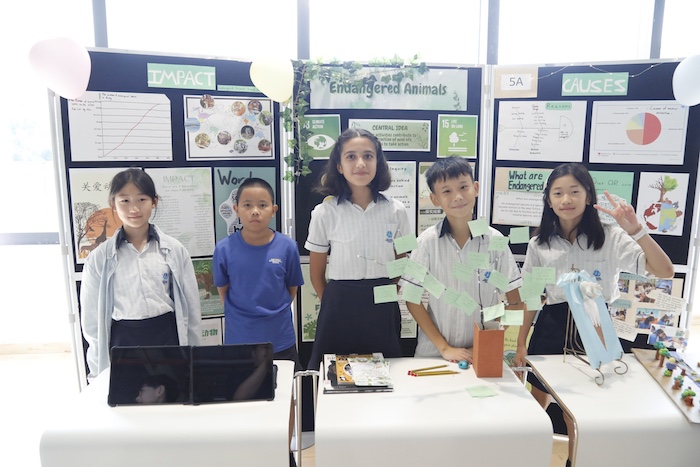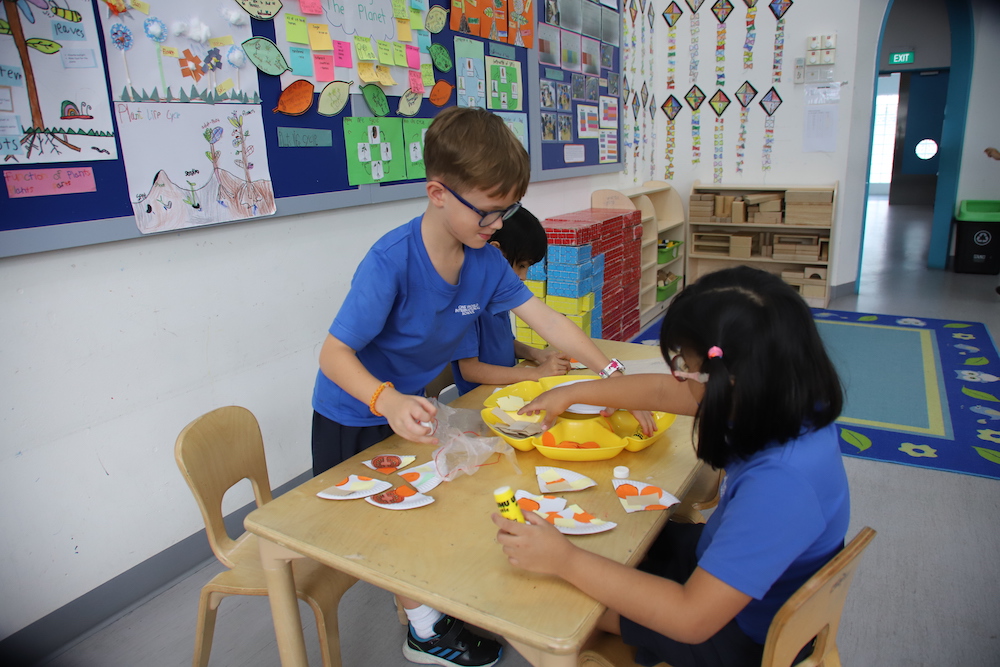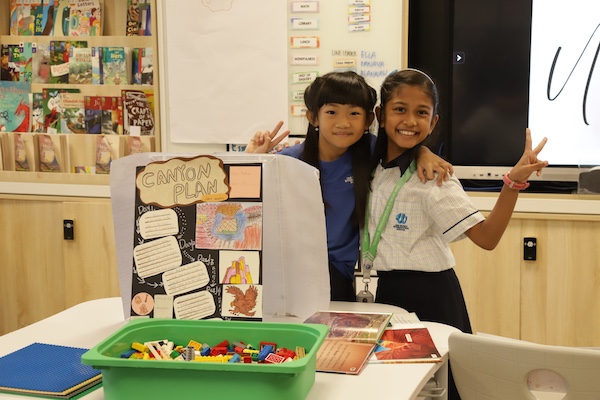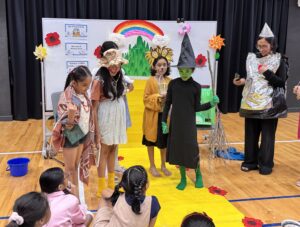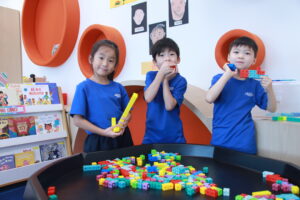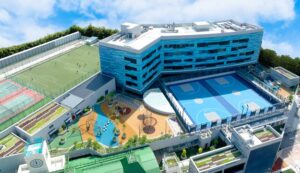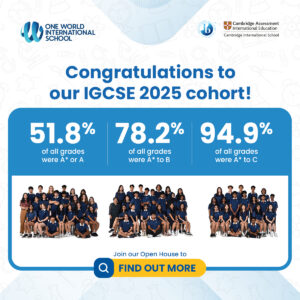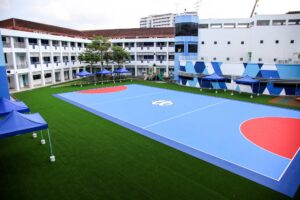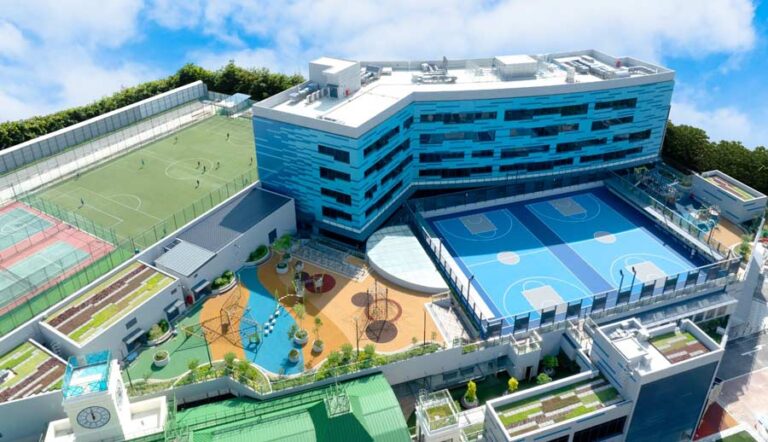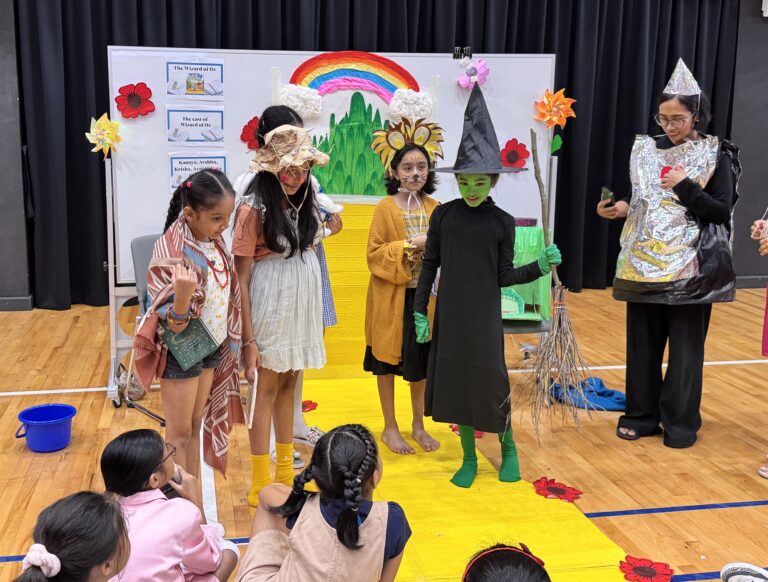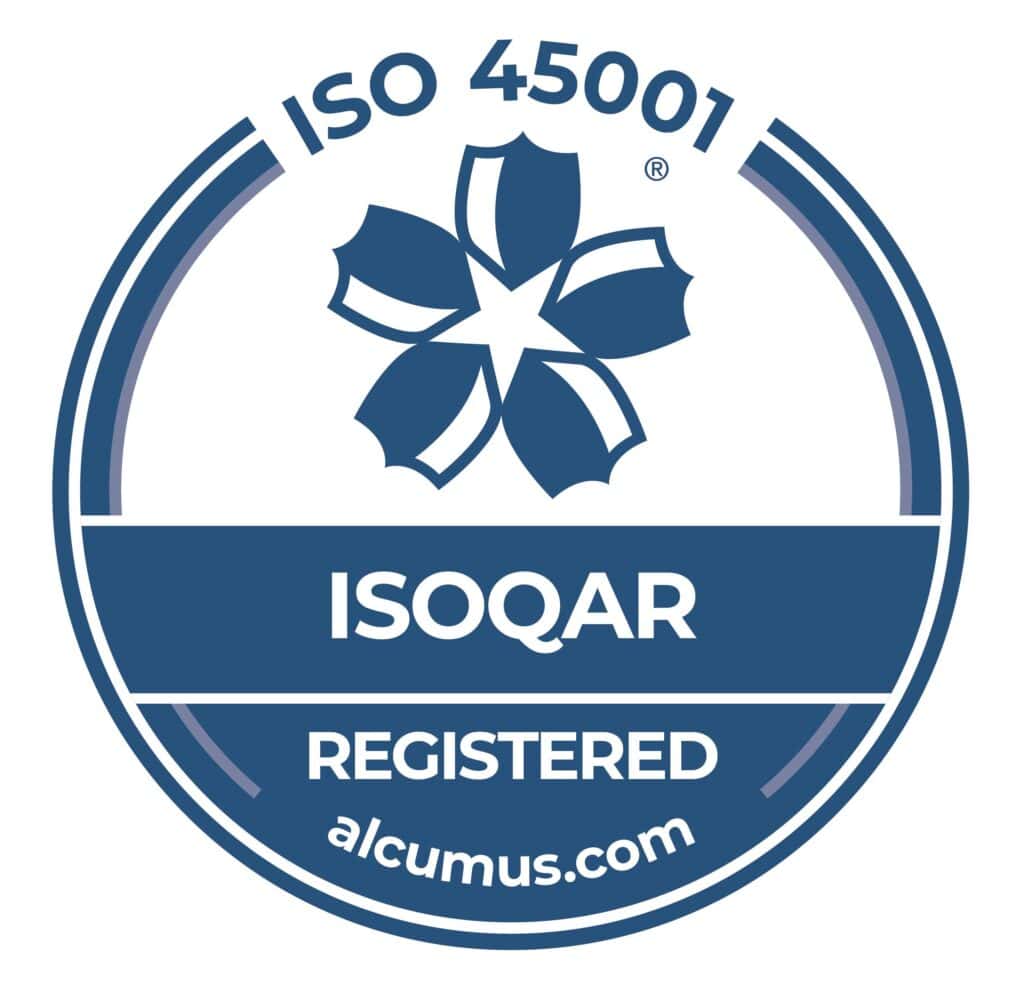The International Baccalaureate Primary Years Programme (IB PYP) is a globally recognised curriculum designed for students between 3 and 12 years old. At One World International School in Singapore, the IB PYP anchors our primary school experience and allows our youngest learners to develop a foundation for the rest of their lives.
We are proud to offer the IB PYP at OWIS Nanyang and OWIS Digital Campus from Early Childhood to Primary School, and we have curated a series of blog posts about the IB PYP experience at our international school in Singapore. Please click the links to read the entire blog.
Unpacking the IB PYP: A Comprehensive Guide for Parents
Considered one of the most dynamic and comprehensive programmes for students in primary school, the IB PYP is the perfect fit for the holistic approach to education that anchors OWIS Singapore. This blog post provides parents with a comprehensive look at the IB PYP, allowing them to develop an in-depth understanding of this curriculum and see why it’s the best choice for their child.
The IB PYP is developed around a framework that consists of three pillars:
- The Learner
- Learning and Teaching
- The Learning Community
One of the hallmarks of the IB PYP is that it extends beyond academic development and knowledge acquisition. While study habits, academic success and knowledge acquisition play a critical role in the curriculum, this innovative programme also promotes kindness, empathy and cultural awareness. Student agency is a focal point of the curriculum, and teachers are considered guides who oversee discussion and collaboration.
As part of its kindness-based approach to education, the IB PYP framework helps children achieve the qualities outlined in the IB Learner Profile. The IB Learner Profile aims to shape children into individuals who are:
- Inquirers
- Knowledgeable
- Thinkers
- Communicators
- Principled
- Open-Minded
- Caring
- Risk-Takers
- Balanced
- Reflective
When the IB PYP is implemented in a holistic learning environment, the results are incredible. Students of all ages at OWIS have benefited from the IB PYP during their primary years.
How IB PYP Fosters Creativity in Young Learners
Creativity is considered one of the most important 21st-century skills, and young students need to know how to cultivate it to develop new and innovative solutions to the complex problems of our modern era. Fortunately, the IB PYP naturally fosters creativity in young students, allowing your child to think outside the box and use their imagination throughout their educational journey.
Research has shown that creativity is an essential trait that offers incredible benefits, such as:
- Providing children with an opportunity to express themselves.
- Improving critical thinking and problem-solving skills.
- Allowing children to take risks, make mistakes and improve their overall resiliency.
At OWIS Singapore, our teachers implement the IB PYP in a way that fosters their natural sense of creativity. They do so by::
- Providing students with a provocation at the beginning of the unit. These open-ended questions give students the freedom to think about a topic before instruction is provided.
- Incorporating pretend play centres into the classroom environment that align with the theme being discussed. These centres are particularly popular in our early childhood and early primary classrooms.
- Allowing students to enjoy role-play scenarios and engage in hands-on learning directly related to the unit being discussed in the classroom.
How IB PYP Encourages the Growth Mindset in Your Child
The term growth mindset is trending, not only in the educational world but also in the professional realm. A growth mindset refers to an individual’s ability to focus on growth and learning opportunities. By encouraging the development of a growth mindset in young learners, we help them become more resilient and more willing to take risks.
When students develop a growth mindset, they:
- Become more confident in their learning environment.
- Become more aware of how they can build upon prior knowledge.
- Learn how to master the skills of questioning, developing theories and testing conclusions.
- Become more willing to accept new information.
- Become more aware of the people around them who are willing to help and who can instil new knowledge in them.
The IB PYP supports the development of the growth mindset through its transdisciplinary approach to education. Throughout the IB PYP, students will study overarching themes that can be applied across multiple subjects, allowing them to see how their learning connects.
By utilising question words and encouraging students to think independently, the IB PYP naturally cultivates a growth mindset in all young learners at OWIS Singapore.
What Is Transdisciplinary Learning in the PYP?
Transdisciplinary learning rests at the core of the IB PYP, and it allows students to make connections across subject areas and understand how their newfound knowledge can be applied in the real world. Defined as a learning style that focuses on building concepts and skills across subject areas, the IB PYP focuses on the following themes to enact transdisciplinary learning throughout the PYP:
- Who am I?
- Where am I in place and time?
- How does the world work?
- How can I best express myself?
- How do I organise myself with others?
- How do I share the planet successfully with others?
Transdisciplinary learning allows students to develop the critical skills they will need to succeed in the classroom environment and throughout their personal and professional lives as adults. The skills the children will develop throughout the transdisciplinary learning process include:
- Thinking Skills
- Self-management Skills
- Communication Skills
- Social Skills
- Research Skills
At OWIS Singapore, we strive to personalise each transdisciplinary theme and provide students with engaging, interactive lessons that allow them to develop a conceptual understanding of the world.
Personalised Learning Through Learning Stations in the PYP Classroom
At OWIS Singapore, we recognise that no two students are alike and know that each child requires personalised instruction to achieve their fullest potential. As a result, we implement the IB PYP in a way that we can personalise the learning experience for each child. We accomplish this through the use of Learning stations.
Learning stations are physical locations in the classroom that focus on a specific theme and encourage students to consider a question or solve a problem. At any given time, between three and four students collaborate at a learning station, which allows them to engage in inquiry-led, discussion-based learning on a smaller scale.
All learning stations at OWIS have to include the following elements:
- They must showcase a problem or large question that students resolve together.
- They must include an activity that students can complete independently with minimal instruction.
- They must include essential concepts that students can identify and discuss later.
Some of the learning stations that are included as part of the IB PYP at OWIS Singapore include:
- Literacy stations, such as guided reading stations or listening stations.
- Math stations, such as those that include hands-on math manipulatives or technology.
- Research stations, such as those that provide students with additional information or material about a given subject that they can explore independently.
PYP Assessments: How They Help Students Reach Their Personalised Goals
Throughout the IB PYP at OWIS, we encourage our students to play a driving force in their learning experience, as this is the best way to make learning fun and exciting. However, meaningful assessments are necessary to ensure that all students reach their goals.
The types of assessments that are included as part of the IB PYP include:
- Formative Assessments — These are informal assessments that take place regularly. Some examples of formative assessments include quizzes, experiments, written reflections and class discussions.
- Summative Assessments — These are structured assessments that occur at regular intervals to verify that students have met all objectives.
By incorporating a variety of assessments and styles into the IB PYP, we ensure that all learning styles are accommodated.
The IB PYP is the perfect complement to our holistic approach to education, allowing us to provide our students with opportunities to connect the material they are learning in the classroom to the real world. This inquiry-led, discussion-based programme prepares students for the academic challenges they will face in secondary school, allowing them to continue their educational journey with confidence.
For more information about the IB PYP at OWIS Singapore, contact us today.
